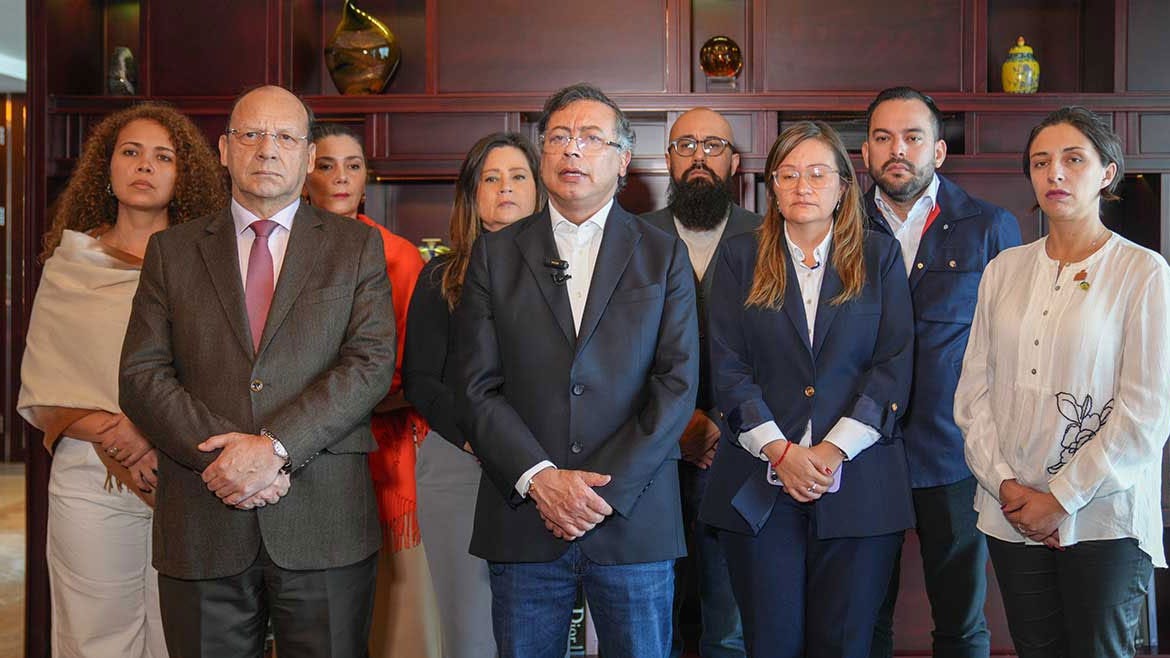Petro orders security forces not to interfere as he calls for direct action in the streets
Colombian President calls on citizens to organize community councils in response to Senate “fraud” on popular labor reform bill
This is an installment of our new vertical “LATAM Daily Wires”, flash updates on breaking stories and snapshots of development on big headlines. Today’s piece is produced in conjunction with Colombia Reports and will be updated throughout the day with responses from civil groups to Petro’s call for direct actions in the country.
President Gustavo Petro has called on citizens to organize mass social movements in response to an allegedly fraudulent Senate vote that sank a broadly supported referendum on the expansion of labor rights in Colombia.
From China, where he is currently organizing trade and investment meetings, Petro addressed the nation and called on local authorities to facilitate local working-class council meetings.
These community councils would be in charge of formulating a response to the “class of great capital in Colombia, those who have concentrated wealth,” and have opposed the president’s labor reform proposals. In the president’s vision, they would aim to pressure lawmakers through direct actions, including a possible “general strike".
“I call on you… to meet in open town meetings in all the municipalities of Colombia, in the square, wherever you can,” said Petro in the recorded message released on social media, “to debate in permanent assembly.”
Petro further ordered security forces “not to take up a single arm against the people” and called on citizens “not to exercise violence against anything, against any window, against any person, but to decide on the response with forcefulness.”
Finally, the president said that he would again file his referendum before Congress with the hope that a “clean” vote in the Senate would allow the people to decide on his proposed labor reforms.
In response to Wednesday’s disputed Senate vote, labor unions and indigenous rights groups that organized massive uprisings in 2019 and 2021 said they have already begun mobilizing their bases.
In an exchange of text messages photographed by the newspaper El Espectador, Petro and Interior Minister Armando Benedetti discussed the possibility of a general strike, which would shut down the national economy.
The president’s political party, Colombia Humana, had warned ahead of the senate vote that their social organizations would organize a general strike if Congress’s higher chamber decided to vote against the referendum.
Polling over the last two months, even by right-wing media companies, suggests that Petro’s labor reform proposals count on the support of a significant majority of voters.
Colombia, by some measures, has the second-highest inequality rates in the Western Hemisphere and weak labor protections compared to other democracies. Petro made reforming that a central plank of his presidency, but will voters who have a long and storied history of protests against the government take to the streets to support one?
Some of those who participated in protests in 2021 are still in jail after brutal police repression killed more than 60 and arrested thousands. Petro promised on the campaign trail to release them, but seems to have left those vows behind.
This story will be updated throughout the day.


